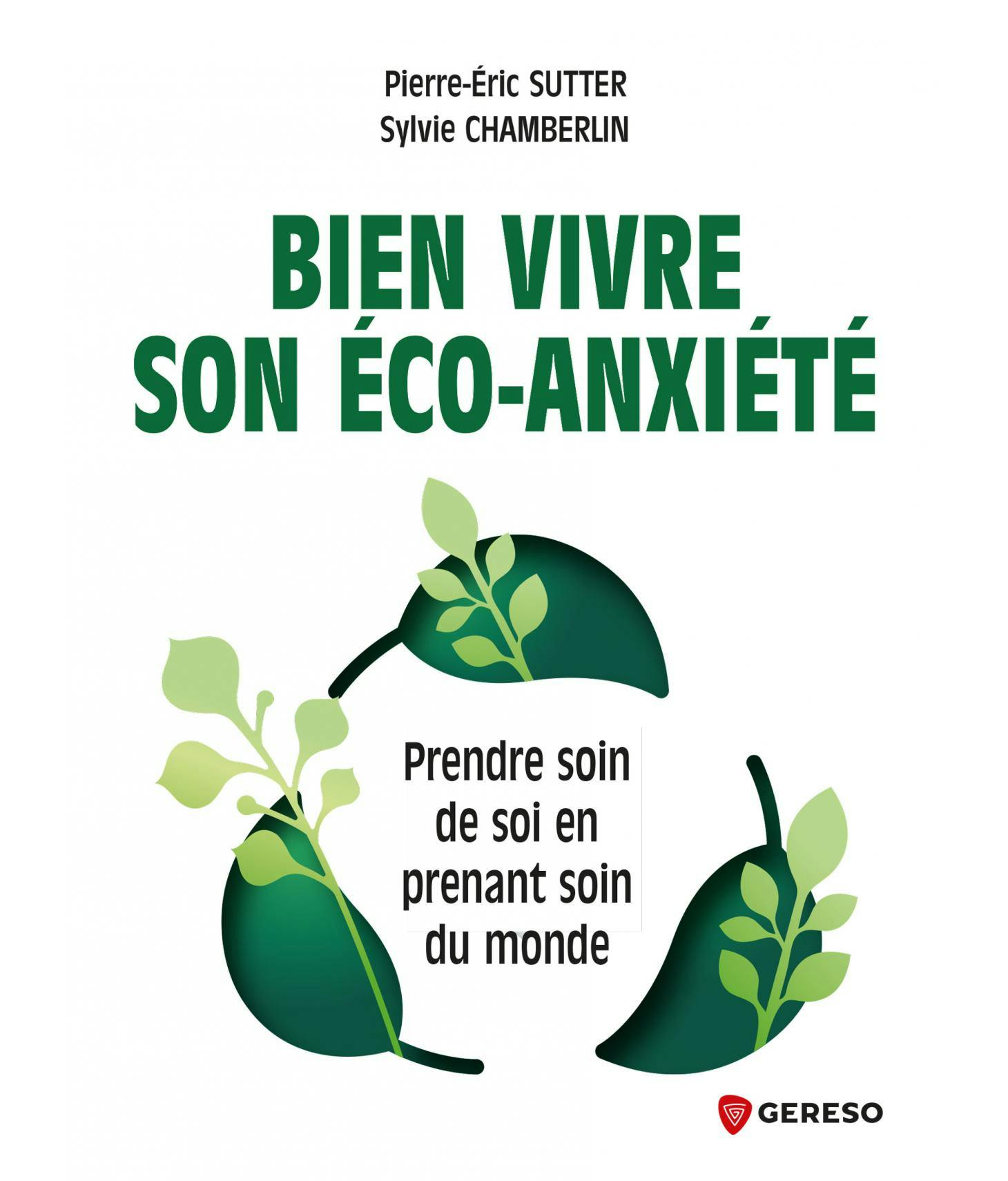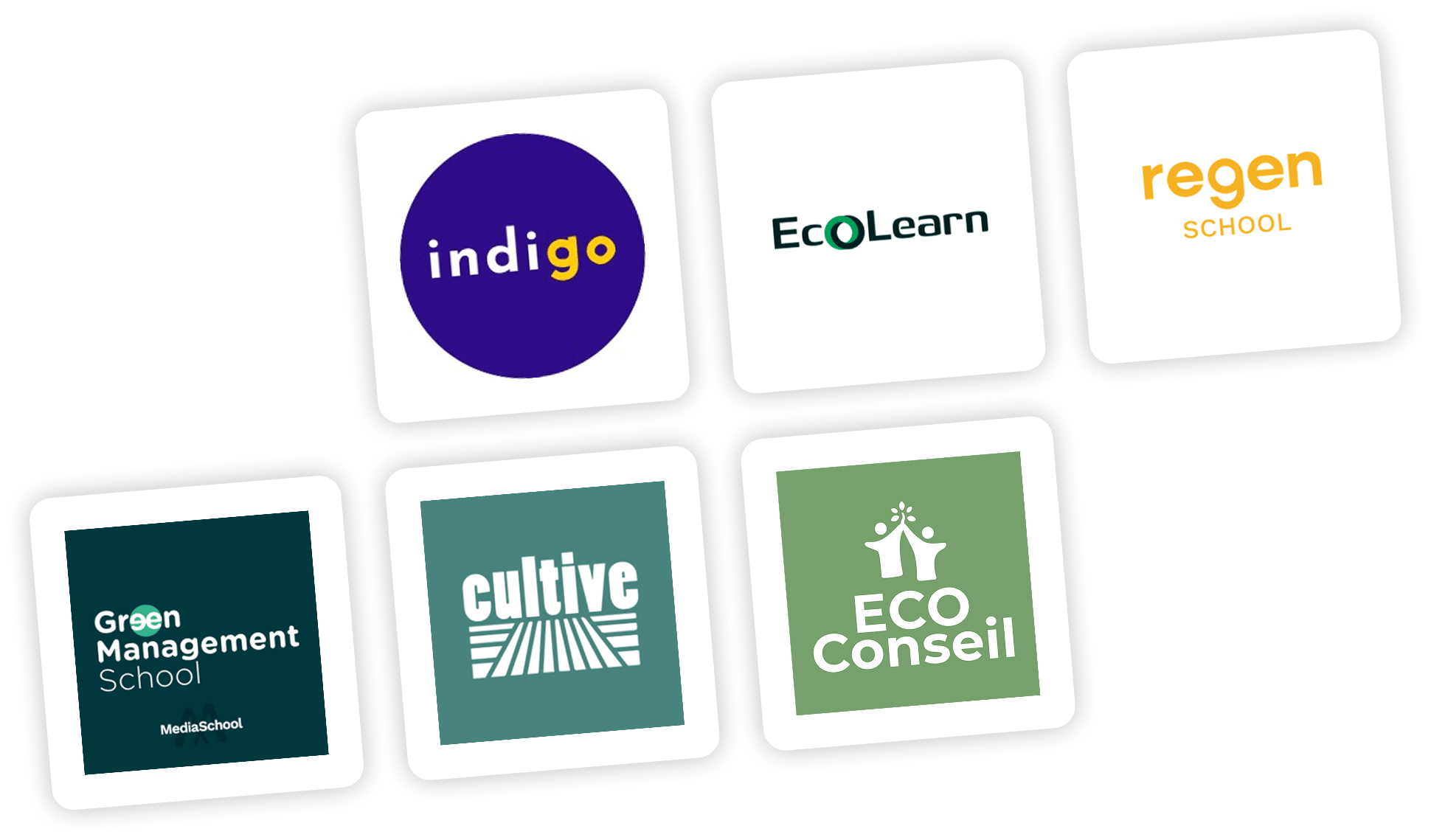Eco-anxiety, a lever for your professional transition?
"When I received my first eco-anxious patient, I went to the register of all existing diseases. I found nothing. Research, on the other hand, has been talking about it since 1997." Pierre-Eric Sutter is one of the few psychologists treating eco-anxiety in France. The first time he heard about eco-anxiety was with one of his patients, in burn out, who had read Comment tout peut s'effondrer? by Pablo Servigne. This encounter triggered his initial interest. Having himself become eco-anxious by learning about his patients' observations on the state of the world, he took action by creating two dedicated observatories and an association: la Maison des Eco-Anxieux. He is taking this subject head-on, and taking action using his resources and skills, just as he advises his patients to do. If you too think you're eco-anxious, if you feel helpless in the face of the challenges, unhappy, cut off from others, trapped in this psychological mess, here's what Pierre-Eric Sutter has to say about it, and the tools he suggests !
What is eco-anxiety?
Eco-anxiety is a psychological distress that can lead to depression.
During his lecture "Eco-anxiety, a path to action?" held at the Université Occidentale de Bretagne, in September 2023, Pierre-Eric Sutter, to illustrate what goes on in the heads of eco-anxious people, uses this quote from Paul Valéry: "We other civilizations, we now know that we are mortal. We feel that a civilization has the same fragility as a life." In France, there are 2.5 million eco-anxious people. Between 2021 and 2022, the press talked a lot about eco-anxiousness. The subject is new, but very much present. However, Pierre-Eric is wary of these societal subjects that everyone is talking about, as they can provoke a feeling of suffering in individuals, without it really being this malaise from which they are suffering. The study reveals, however, that in France,2.5 million people are highly eco-anxious, i.e. in a state where they need to consult a psychologist. That's 5% of the population. "So it's not a fad, but a public health issue," concludes Pierre-Eric. He adds that "contrary to what you might think, it's not just young people."
The symptoms
There are two types of symptoms: cognitive symptoms and behavioral symptoms. Cognitive symptoms include worries about collapse, ruminations, obsessive ideas, conflicts of meaning in relation to the society in which we live, and the feeling that we'll never be able to do enough for the planet. And the behavioral symptoms are more along the lines of violence, withdrawal from friends and social circles, and even isolation.
A disease ?
Lucid, quirky, aware... That's how Pierre-Eric Sutter describes people suffering from this malaise. For, above all, they are based on facts that scientists have been admitting for years. Indeed, when he asks people in the conference room who consider themselves eco-anxious if they feel ill, no one raises a hand. "Eco-anxiety is not a disease, but it can make you sick.
It's mental and psychic distress in the face of environmental challenges. It's an unhappiness that, if it persists and intensifies, can lead to a generalized anxiety disorder that can lead to depression."
Do the test
👉 Want to know if you're eco-anxious.se? Here's the test recommended by Pierre-Eric Sutter.
How to get out of eco-anxiety?
"Rather than asking: what future for humanity? It's rather the present we should be looking at."
Acceptance
To talk about acceptance, the psychologist draws a comparison with cancer. "Scientific studies have shown that those who cope best are those who accept the diagnosis and keep up their energy to fight. They manage through self-persuasion to cope better than those who deny the diagnosis or refuse it. "I realized that it was the same with eco-anxious people: those who accept the diagnosis, and keep their resources to mobilize in action, come out better than the others. They also draw inspiration from the Stoics, who spoke of the importance of "caring about what depends on oneself, but not caring about what does not depend on oneself."
A fear that mobilizes
For the psychologist, fear is an excellent advisor. The challenge then is"to move from a fear that immobilizes to a fear that mobilizes." Bad when it immobilizes, it is on the contrary powerful when it puts us into action! Environmental activist Camille Etienne also praises this mobilizing fear in her book Pour un soulèvement écologique, dépasser notre impuissance collective. Fear makes us see dangers, for which we must act. For Pierre-Eric Sutter, eco-anxious people are in fact "the eco-ambassadors of the living. By setting an example, once they've succeeded in implementing their eco-project, they'll raise awareness around them."
"Blessed are the eco-anxious, for they will act."
What actions?
"I'm convinced that eco-anxious people are the ambassadors of the ecological transition."
The psychologist then gives a few tips on how to move from helplessness to action and turn fear into a mobilizing emotion:
#1 Start by feeling good about yourself.
#2 Accept fear by combining the emotional with the rational.
#3 Focus on the good news, even keep a good news diary.
#4 Find inspiring eco-witnesses for our eco-project.
#5 Break free from the consumerist doxa, by trying to combine your environmental values with what society is prepared to accept.
#6 Face "the valley of death" by working on our anguish of finitude and mourning the consumerist society in which we live. He points out that this doesn't mean getting rid of healthcare, the washing machine, the fridge or the smartphone, but rather distrusting progress and its effects.
#7 Always confront your ideas with reality, because trying to impose your ecological values on those who don't want to, risks provoking violence;
#8 Know your strengths and limitations to implement your ecoproject.
#9 Change your lifestyle to avoid dissonance. On this point, the psychologist reminds us that his profession aims to reveal inner contradictions. "You want to change things, but you're not doing it. What's going on in your head?" he questions the room.
The example of an eco-anxious man: Felix Finkbeiner
Pierre-Eric Sutter gives the example of an eco-anxious man who led a large-scale eco-project. In 2007, Felix Finkbeiner was 9 years old when he became aware of ecological issues. The deforestation of the Amazon rainforest, in particular, affected him. He shared with his classmates his wish to plant 1 billion trees. It was his teacher who turned the idea into action, helping him to plant his first tree in the schoolyard. This made the project concrete and possible. He then talked to his parents, who helped him set up an NGO. He then made a speech to the UN to raise money to plant his billion trees. By 2020, he had planted 14 billion trees. This inspiring story, which shows the power of individual and collective action, is shared in the documentary Un Monde Nouveau, by Cyril Dion.
And what about work?
When work makes you eco-anxious
In 2007, Pierre Eric Sutter set up the Mars Lab, to work on mental and environmental prevention for companies. At the time, he was making employers aware of their obligations in terms of means and results in terms of mental health in the workplace. And since he first learned about eco-anxiety, he's been raising companies' awareness on the subject too. "Eco-anxiety can come from the company and the work we do, which isn't always in line with our ecological convictions." You may have heard of cognitive dissonance? Doing a job that's not in line with your convictions and reality can indeed cause eco-anxiety.
Working in the ecological transition, a remedy for eco-anxiety?
Working in the ecological transition would therefore be one of the remedies for your eco-anxiety. As the psychologist points out, understanding what affects you and choosing an eco-project in line with your values can help you deal with your eco-anxiety;
- Are you concerned by issues of social inequality, gender diversity and inclusion? You can join an association that works for equal opportunities like Article 1 or help people excluded from employment to find sustainable jobs with Groupe Vitamine T. Here are offers to take action on these issues!
- Does oil extraction drive you crazy? Then the energy sector is for you. It's one of the 4 key sectors of the ecological transition, and there are many professions in this field. Here are the job offers to get involved in energies.
- There's too much waste. Would you like to fight against waste or recycle, reuse materials? The Bulk and Reuse Network, for example, democratizes bulk and reuse channels! To get involved in these subjects, here are circular economy structures that could inspire you and are recruiting!
On jobs_that_makesense, we've put together a list of job offers based on the issues and eco-projects you might want to get involved with! There are 20 of them, and here they are:
- Fabien add table with 20 causes
👉 And to discover more offers like this, you can check out all the deals here!
To conclude, we think it's worth reminding you that there's a happy medium to be found when you decide to commit yourself to the ecological transition and take action on your eco-anxiety. Taking action is good, but be careful not to lose any feathers! Indeed, if you work all day on these often heavy social issues, you can also feel eco-anxiety. So make sure you concentrate on what makes you feel good, and switch off from time to time ;)

Further information
👉You can read Pierre-Eric Sutter's book: Bien vivre son éco-anxiété, which enables everyone to develop their thinking and action to deal with eco-anxiety.



